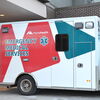
Processing Your Payment
Please do not leave this page until complete. This can take a few moments.
- News
-
Editions
-
- Lists
-
Viewpoints
-
Our Events
-
Event Info
- Business Leaders of the Year Reception 2025
- Women's Leadership Forum 2025
- On the Road with Mainebiz in Bethel
- Health Care Forum 2025
- On The Road with Mainebiz in Greenville
- On The Road with Mainebiz in Waterville
- Small Business Forum 2025
- Outstanding Women in Business Reception 2025
- On The Road with Mainebiz in Bath
- 60 Ideas in 60 Minutes Portland 2025
- 40 Under 40 Awards Reception 2025
- On The Road with Mainebiz in Lewiston / Auburn
- 60 Ideas in 60 Minutes Bangor 2025
Award Honorees
- 2025 Business Leaders of the Year
- 2024 Women to Watch Honorees
- 2024 Business Leaders of the Year
- 2023 NextUp: 40 Under 40 Honorees
- 2023 Women to Watch Honorees
- 2023 Business Leaders of the Year
- 2022 NextUp: 40 Under 40 Honorees
- 2022 Women to Watch Honorees
- 2022 Business Leaders of the Year
-
-
Calendar
-
Biz Marketplace
- News
- Editions
- Lists
- Viewpoints
-
Our Events
Event Info
- View all Events
- Business Leaders of the Year Reception 2025
- Women's Leadership Forum 2025
- On the Road with Mainebiz in Bethel
- Health Care Forum 2025
- On The Road with Mainebiz in Greenville
- + More
- On The Road with Mainebiz in Waterville
- Small Business Forum 2025
- Outstanding Women in Business Reception 2025
- On The Road with Mainebiz in Bath
- 60 Ideas in 60 Minutes Portland 2025
- 40 Under 40 Awards Reception 2025
- On The Road with Mainebiz in Lewiston / Auburn
- 60 Ideas in 60 Minutes Bangor 2025
- - Less
Award Honorees
- 2025 Business Leaders of the Year
- 2024 Women to Watch Honorees
- 2024 Business Leaders of the Year
- 2023 NextUp: 40 Under 40 Honorees
- 2023 Women to Watch Honorees
- 2023 Business Leaders of the Year
- + More
- 2022 NextUp: 40 Under 40 Honorees
- 2022 Women to Watch Honorees
- 2022 Business Leaders of the Year
- Nomination Forms
- Calendar
- Biz Marketplace
Compliance, communication key as businesses reopen, experts say in Mainebiz webcast
 Photo / Renee Cordes
As businesses across Maine get ready to reopen, experts highlighted some of the issues employers should address in a Thursday Mainebiz webinar on "What does 'open' look like?"
Photo / Renee Cordes
As businesses across Maine get ready to reopen, experts highlighted some of the issues employers should address in a Thursday Mainebiz webinar on "What does 'open' look like?"
When businesses press restart after the COVID-19 shutdown, it won't be as simple as putting an "open" sign on the door or office — employers will have to navigate a host of legal obligations to make workplaces safe and healthy.
Companies will also need to communicate about all the steps they take to be compliant, and won't be able to force staff back to work if they can still do their jobs from home.
Those were some of the takeaways from a Mainebiz webcast Thursday morning, discussing what employers need to have in place before bringing employees back to work. A total of 525 people registered for the event, entitled "What Does 'Open' Look Like?"
The one-hour session featured Pierce Atwood partner Jim Erwin; Catherine Lamson, senior vice president and chief administrative officer at MEMIC, a workers' compensation insurance provider she described as "a safety company that just happens to sell insurance"; and Heather Paquette, vice president of retail services at Scarborough-based Hannaford Supermarkets.

It's been a busy time for law firms, and Erwin said that Pierce Atwood had been putting out far more reports and research materials than it typically does for clients amid a situation that neither the firm nor its clients has seen the likes of before.
Among the various requirements and legal guidelines for employers, one that had until recently been under the radar is a 1970 federal law that created the Occupational Health and Safety Administration, or OSHA.
Erwin said that agency has the legal authority to oversee workplace safety in Maine and noted that it had already received more than 1,000 complaints related to the pandemic.
"OSHA is and will remain at the center of regulatory framework for workplace safety," he said.
Erwin also touched on other guidelines, including ones from the Maine Center for Disease Control and Prevention, other guidance from the state, and industry-specific COVID-19 checklists the Maine Department of Community and Economic Development is constantly adding to and updating.
While CDC guidance is not legally binding, Erwin underscored that OSHA rules are mandatory, cautioning: "If OSHA doesn't think you have a safe workplace, they can cite you and fine you."
Importance of communicating
Like Pierce Atwood, MEMIC also has resources on its website for employers in Maine, specifically about COVID-19 as it relates to a workforce and workers' compensation policy.
As a large employer itself, Lamson said MEMIC is "making sure that we have communicated appropriately with our staff to let them know what our plan is" when it reopens.
That includes letting people know about all the precautions the company is taking in terms of cleaning, as well as new policies on social distancing and wearing face masks in the office.

"We have all that written out, we know exactly how we're going to initiate the program," Lamson said, adding that the company is in the process of distributing the plan and setting up training for staff members wanting to come back. But she also said that the team has managed very well remotely, so nobody will be required to come back to the office.
'All-hands-on-deck mentality'
As a business that has stayed open the whole time, Hannaford had to build its plan as COVID-19 was happening, coming up with a plan at the outset that has changed 75 times since then, according to Paquette.
She said the retailer has been following CDC guidance closely which itself has changed a few times, and noted that each of the five states in which Hannaford operates has unique needs it has needed to meet.
That was also a plus, in allowing the company to observe trends in markets larger. Extended shopping hours for senior citizens, for example, started in a different state and was introduced in Maine before it was mandated, she said.
Throughout the pandemic, she said that safety was most important, followed by service, both of which required a variety of accommodations to the business model. That included having all staff providing store and operations support wherever needed.
"We established an all-hands-on-deck mentality," she said.
During a discussion about best practices on a number of practical things from cleaning to temperature screening, Lamson said that while MEMIC plans to provide face coverings, employees who wish to do so can also use their own, maybe even being creative on that front.
"Work needs to be fun again, too," she said, "not scary."
Later in closing, she reiterated the importance of communicating with employees and keeping them happy and on staff, saying, "You hired them because they're the best for your business, let's keep them."

Paquette added to that thought, urging employers to listen to employees and, when it comes to COVID-19, to "check your ego at the door," and be willing to act quickly amid changing circumstances.
"Be swift, be decisive, be nimble, listen, and do everything you can to protect your people and your customers," she said.
Erwin's final advice to employers: Prepare an actual plan. "It will make your workplace safer, it will make your employees more confident, and it will protect you in the legal realm" in case of complaints, he said. He also said that if there is a checklist for your industry, you should follow it accordingly.
Part two in June
Thursday's webcast, moderated by Mainebiz publisher Donna Brassard, was sponsored by Pierce Atwood and MEMIC.
A recording is available on the Mainebiz website.
Part two on the same topic is planned for the week June 14.
Please check the Mainebiz events calendar regularly for updates on all upcoming events.













0 Comments